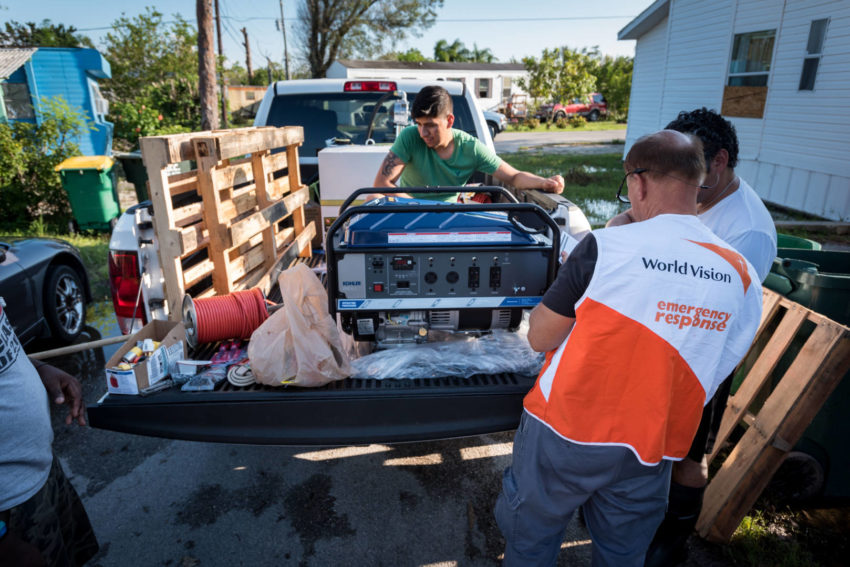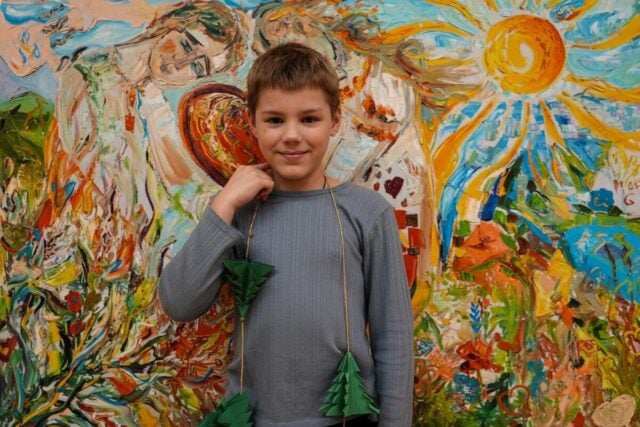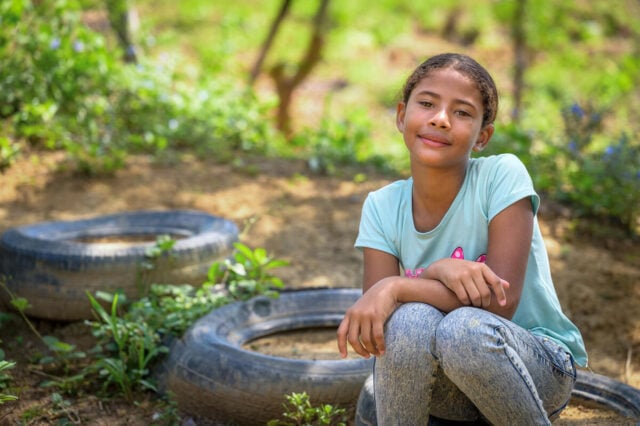“Do you have power yet?” is one of the first questions Immokalee, Florida, residents ask each other when they meet. Communities like Immokalee that were on the east and northeast sides of Hurricane Irma experienced the strongest winds the hurricane threw at inland southwest Florida.
Repair crews working to restore power are dealing with broken poles, lines down, damaged transformers, and fallen trees in their quest to turn the lights back on. Statewide, the initial power outage affected more than 6.8 million people. For the utility company that powers homes and businesses in Immokalee, less than 50,000 are still without power.
World Vision is helping families and social service agencies in the midst of Hurricane Irma recovery by providing generators as part of relief efforts. The five families that share two of the generators are a microcosm of Immokalee residents: a family with four children, a couple caring for chronically-ill parents, four single men — farm workers — who rent a trailer together, a grandmother living on her own, and a young couple with his parents.
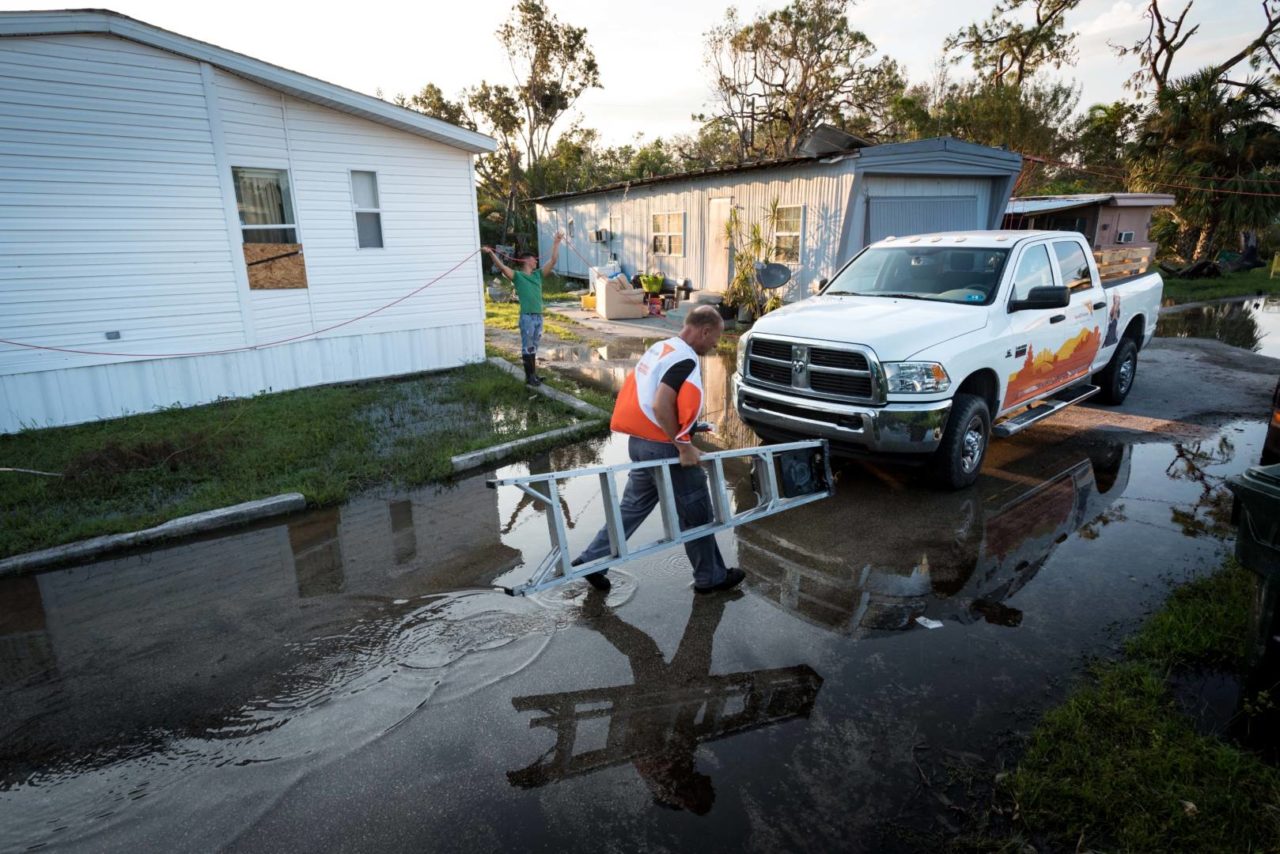 Rich Moseanko (carrying the ladder) is a member of World Vision’s global rapid response team that brought relief goods and other assistance to families in Immokalee, Florida, affected by Hurricane Irma. A week after the storm, nearly 2 of every 3 residential power customers were still without electricity. It could be weeks before service is restored to the hard-hit Collier County community. (©2017 World Vision/photo by Eugene Lee)
Rich Moseanko (carrying the ladder) is a member of World Vision’s global rapid response team that brought relief goods and other assistance to families in Immokalee, Florida, affected by Hurricane Irma. A week after the storm, nearly 2 of every 3 residential power customers were still without electricity. It could be weeks before service is restored to the hard-hit Collier County community. (©2017 World Vision/photo by Eugene Lee)
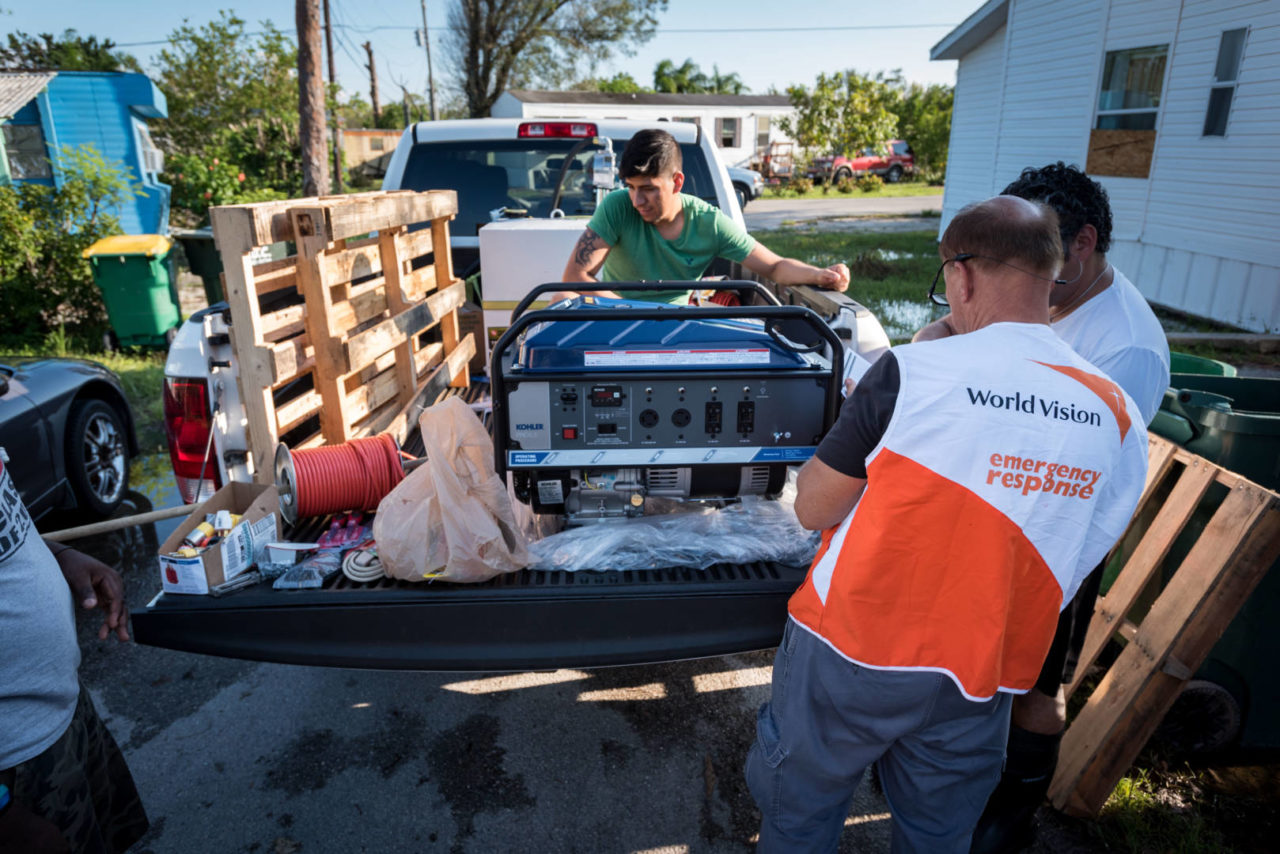
With help from members of Bethel Assemblies of God Church, Rich delivered and installed a generator to bring power to five families. When electric service is restored, the generator will go into storage for the next emergency. Lorenzo Arreola, 29, (center in green shirt) and other residents helped with the installation. (©2017 World Vision/photo by Eugene Lee)
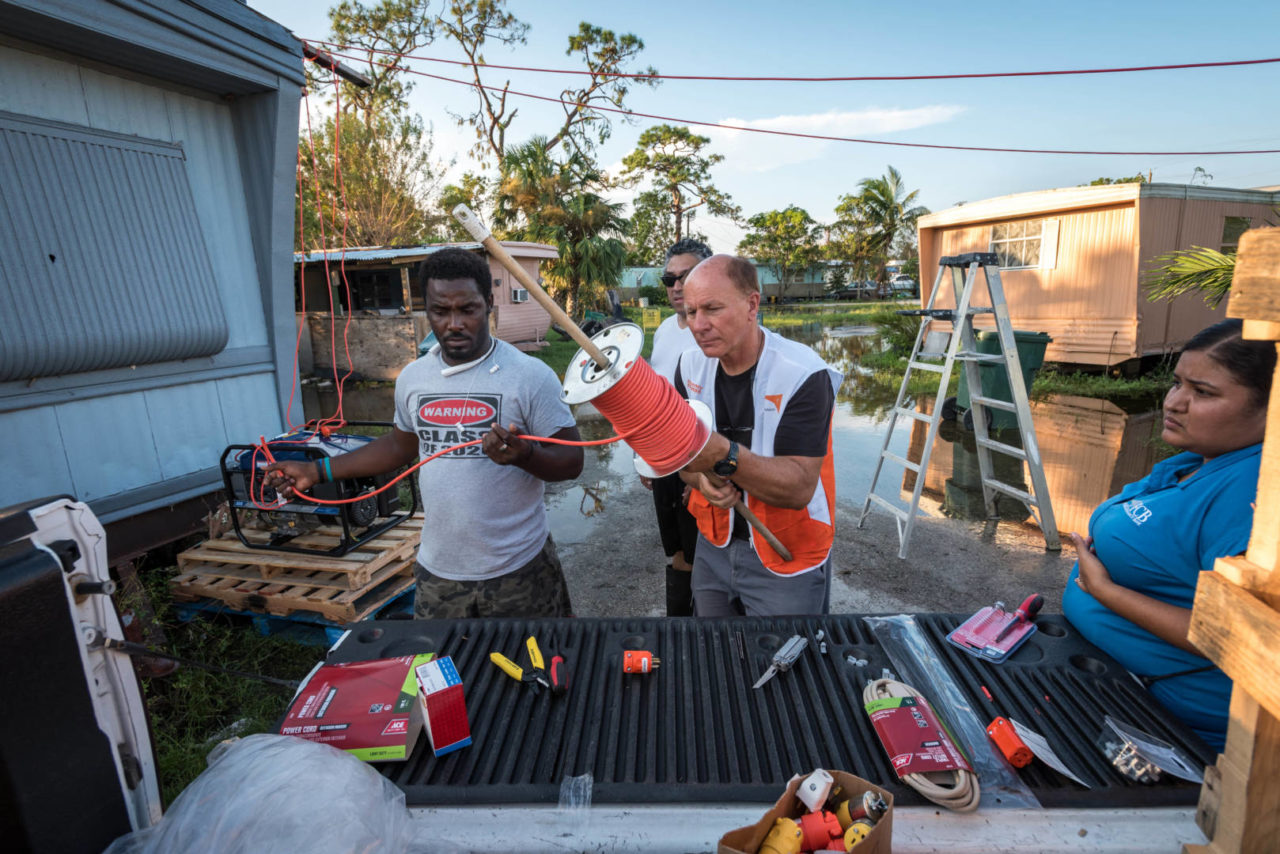
“I like to help everybody,” says Mackenro Cantave, 27, (left), an electrician from Haiti. Mackenro visits his grandmother Venita Francois daily and was glad to lend a hand. (©2017 World Vision/photo by Eugene Lee)
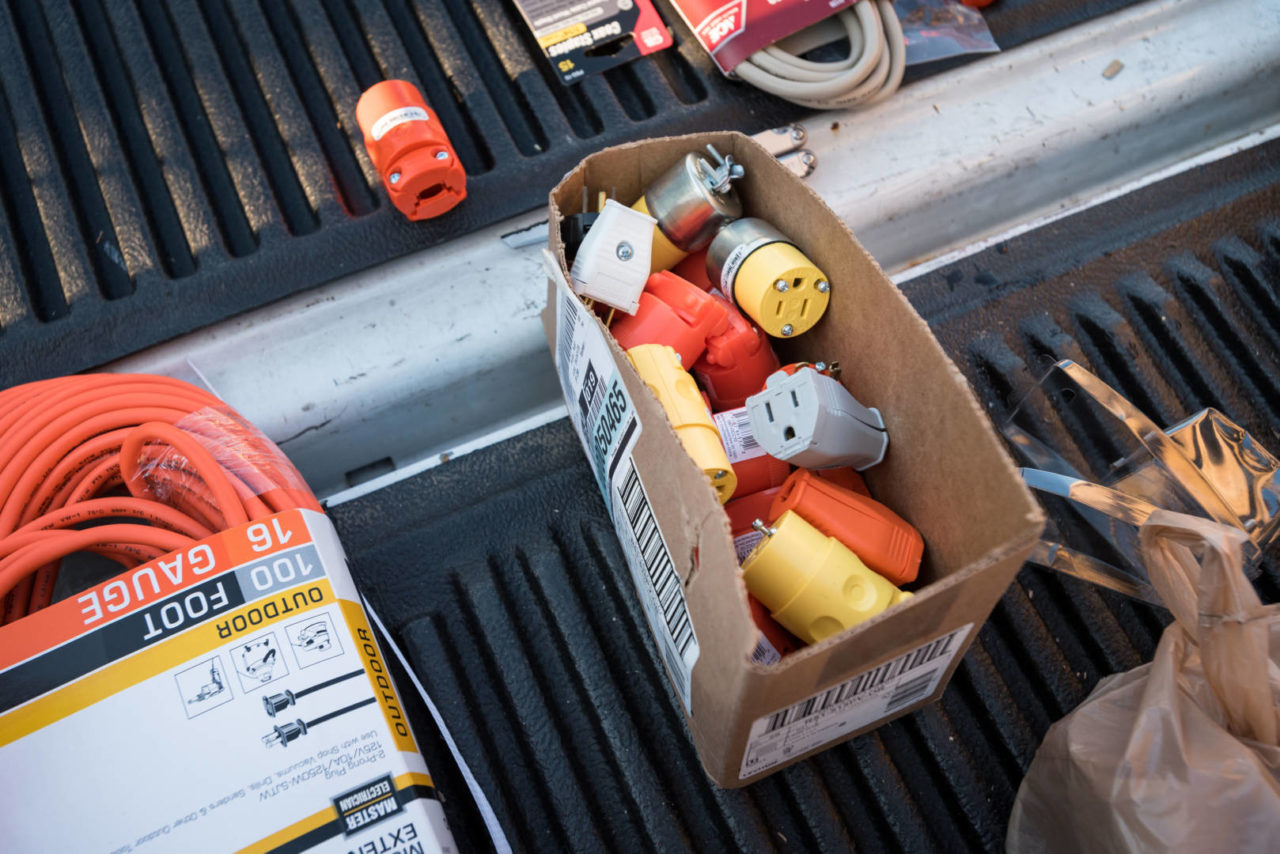
World Vision also loaned generators to Immokalee soup kitchens and churches that needed them to provide public services after the storm. The trailer park installation was a bit more challenging, but old-fashioned ingenuity saw it through. (©2017 World Vision/photo by Eugene Lee)
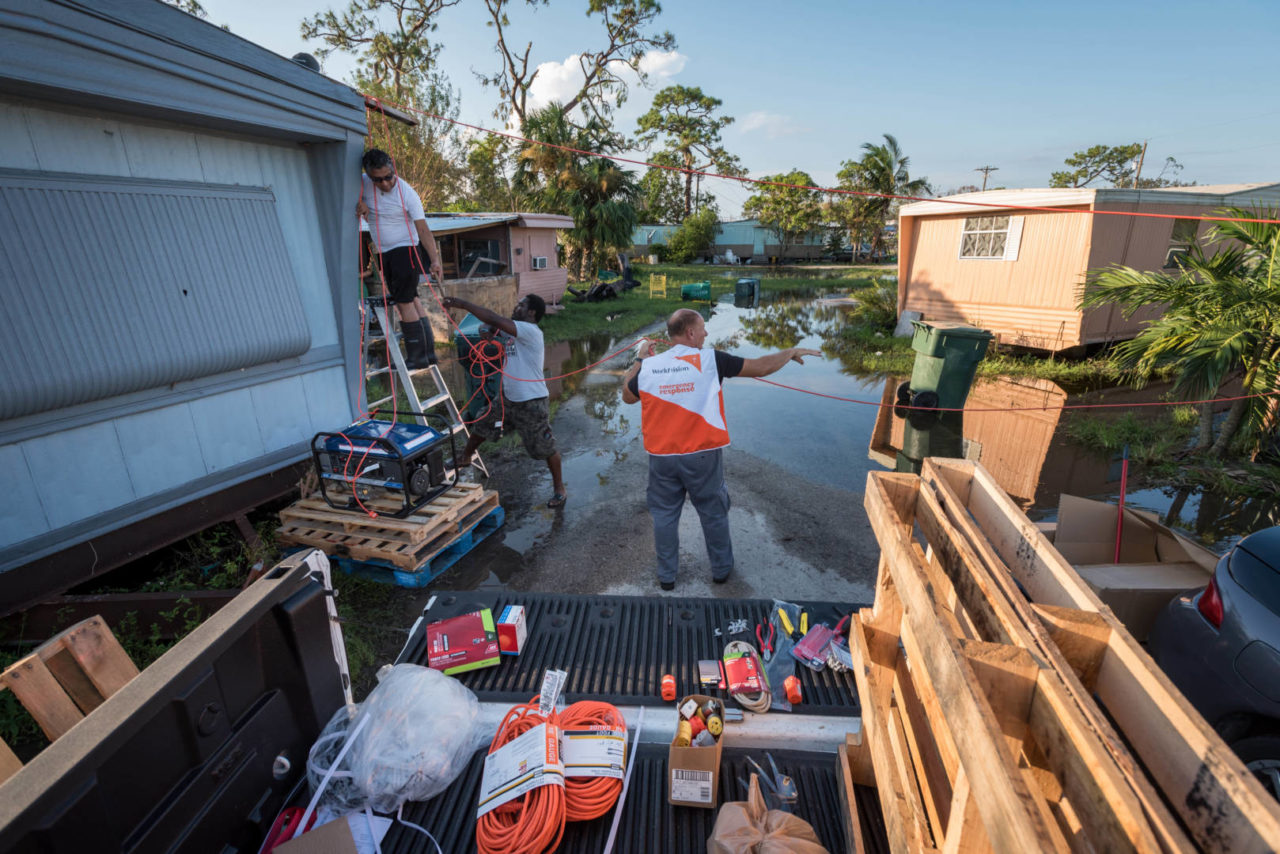 Many families live in trailer parks in low-lying areas with nowhere for the water to drain. So the generator was raised on pallets and cords were strung from trailer to trailer to stay above the wet ground. World Vision had also brought in water pumps, but in this location, there was nowhere to pump the water; people will have to wait for it to dry up. (©2017 World Vision/photo by Eugene Lee)
Many families live in trailer parks in low-lying areas with nowhere for the water to drain. So the generator was raised on pallets and cords were strung from trailer to trailer to stay above the wet ground. World Vision had also brought in water pumps, but in this location, there was nowhere to pump the water; people will have to wait for it to dry up. (©2017 World Vision/photo by Eugene Lee)
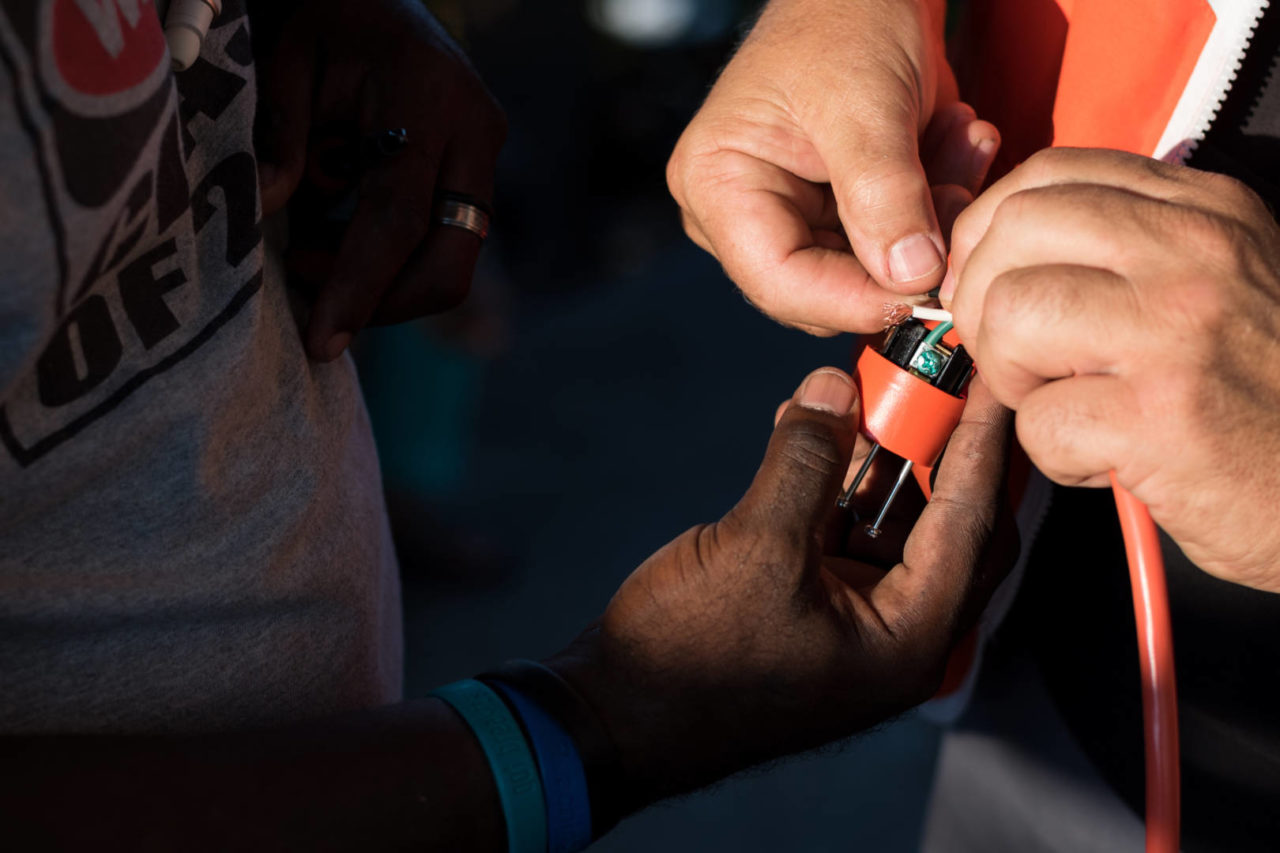
Out of necessity, extension cords were custom-made to fit the trailer park installation. The hardware store — the first retail business to open after the hurricane — was picked clean of many supplies. While this crew tackled installing generators, people all over Immokalee, a town of about 25,000, were making repairs and cleaning up debris after the storm. (©2017 World Vision/photo by Eugene Lee)
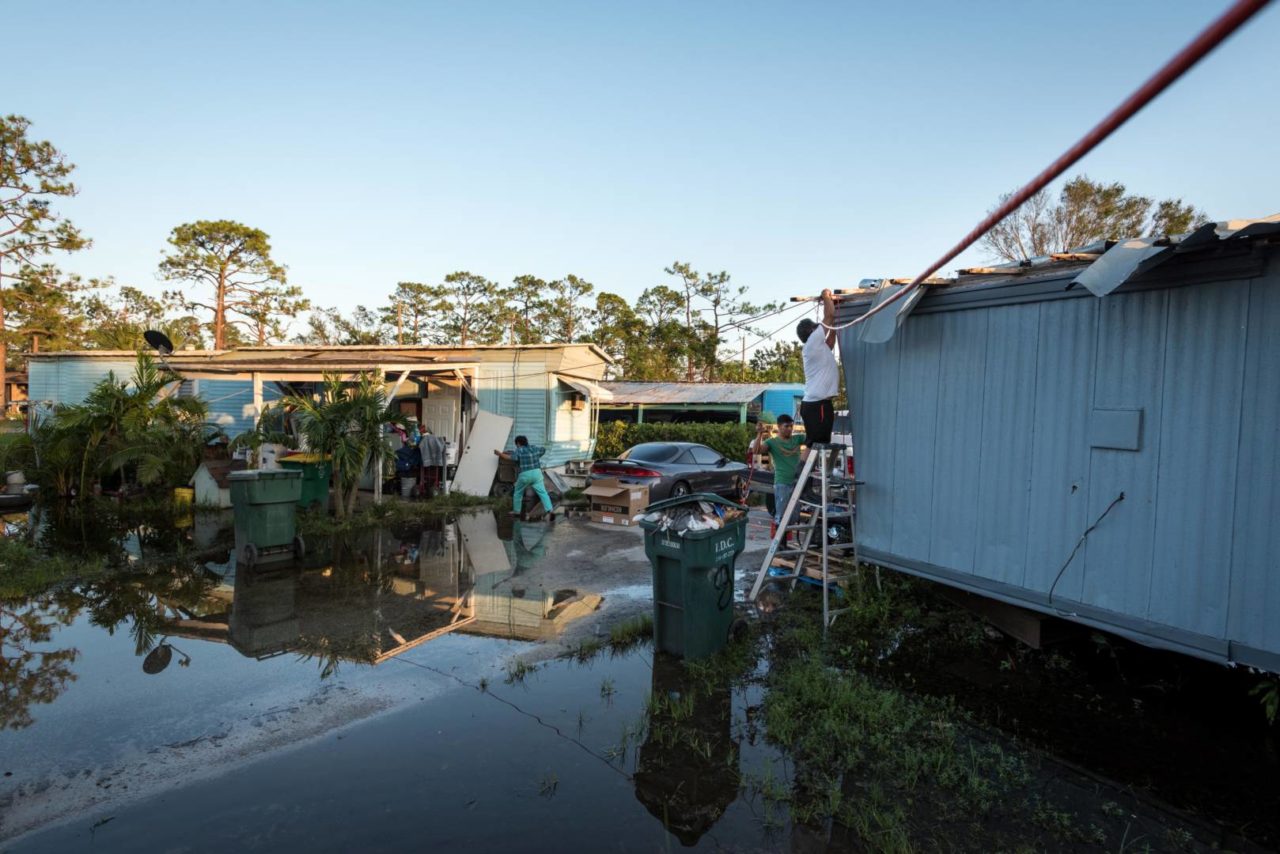
Lorenzo (center in green shirt), who lives in the blue trailer to the left, helps hang the extension cords. The generator can power a few items such as refrigerators, fans, and lights. But since the generator is splitting power to five homes, it unfortunately can’t power their air conditioners. (©2017 World Vision/photo by Eugene Lee)
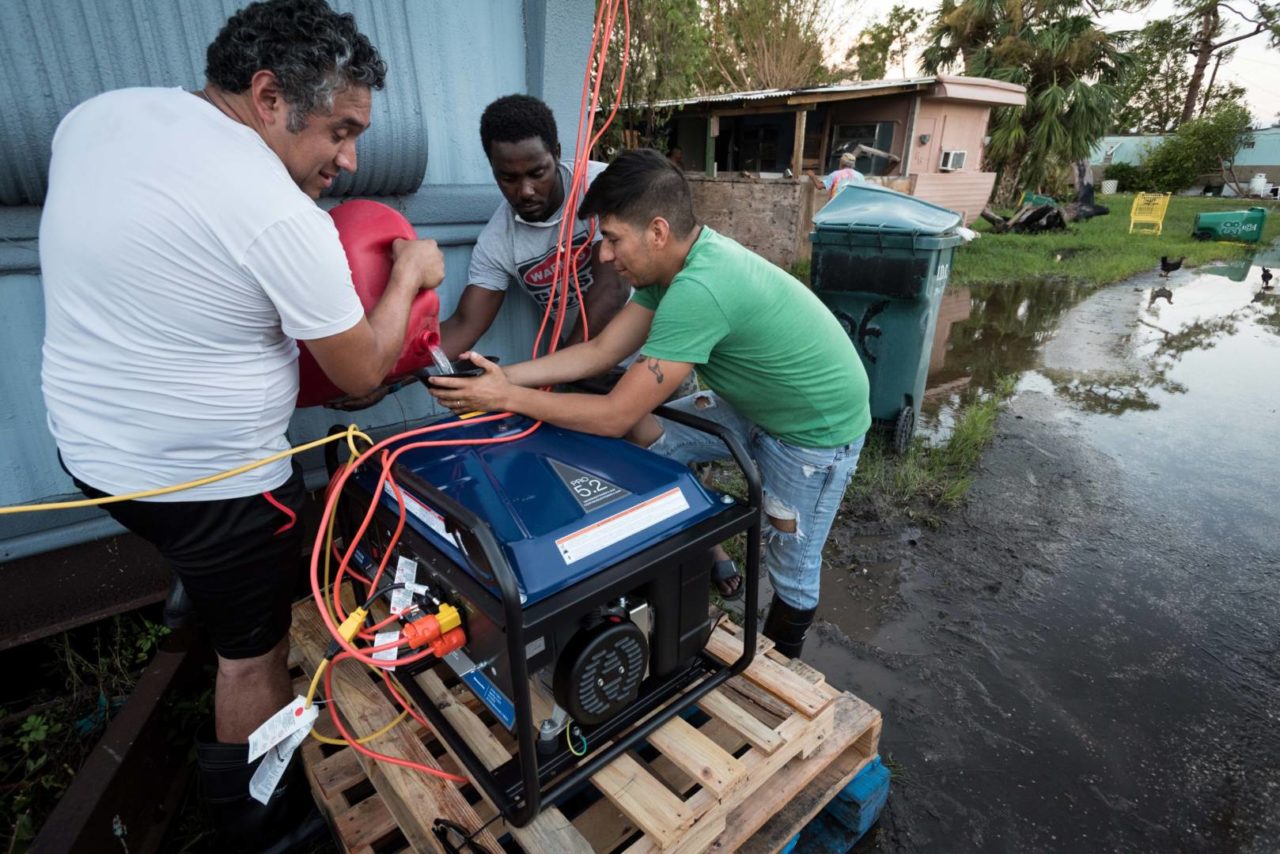
Cristian Alemán, 29, a worship leader at Bethel Church, pours gas into the generator. One generator can provide power for 10 to 12 hours. Rich later brought a second generator so families can have power 24 hours a day by switching between them. (©2017 World Vision/photo by Eugene Lee)
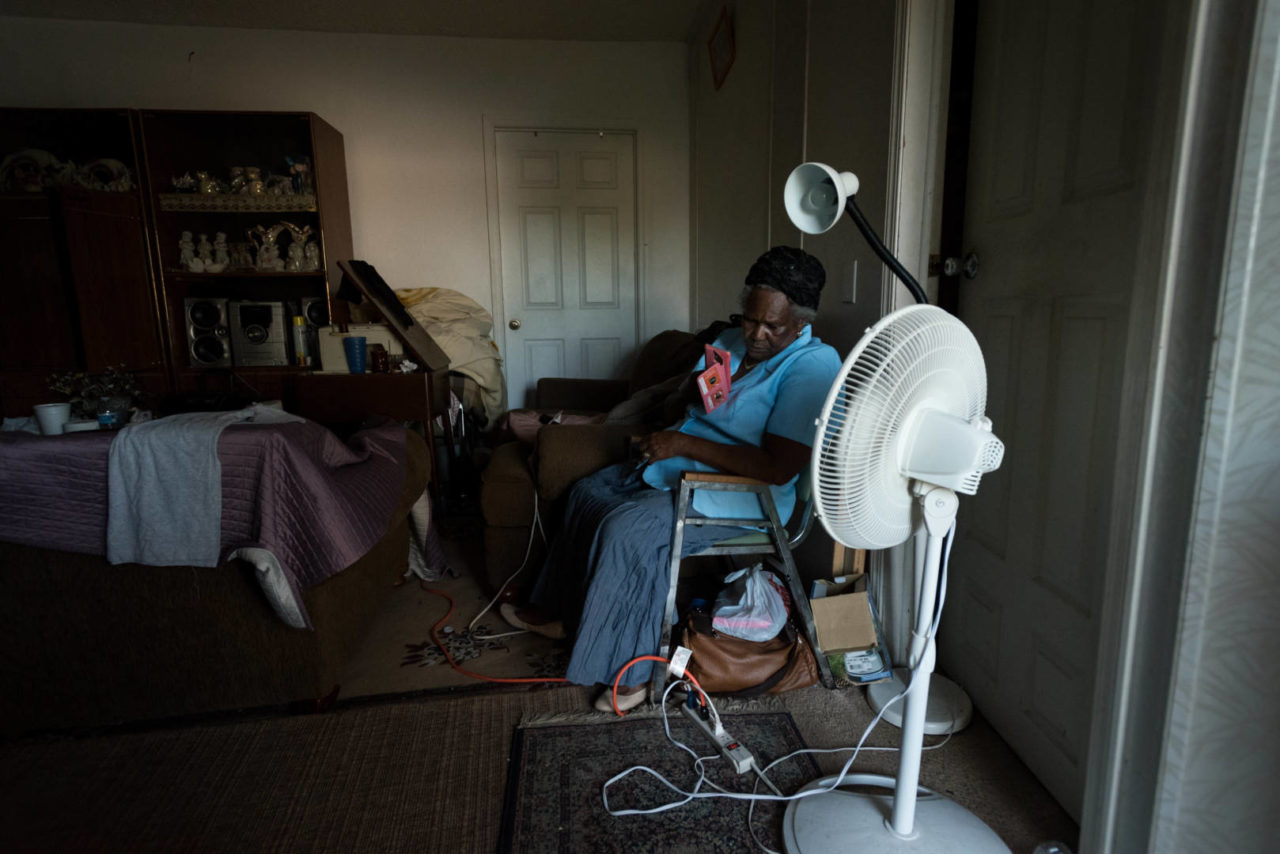
“I have two fans and one light working,” says Mackenro’s grandmother Venita Francois, 68. She looks forward to being able to cook and to restocking her refrigerator after she cleans out the spoiled food. (©2017 World Vision/photo by Eugene Lee)
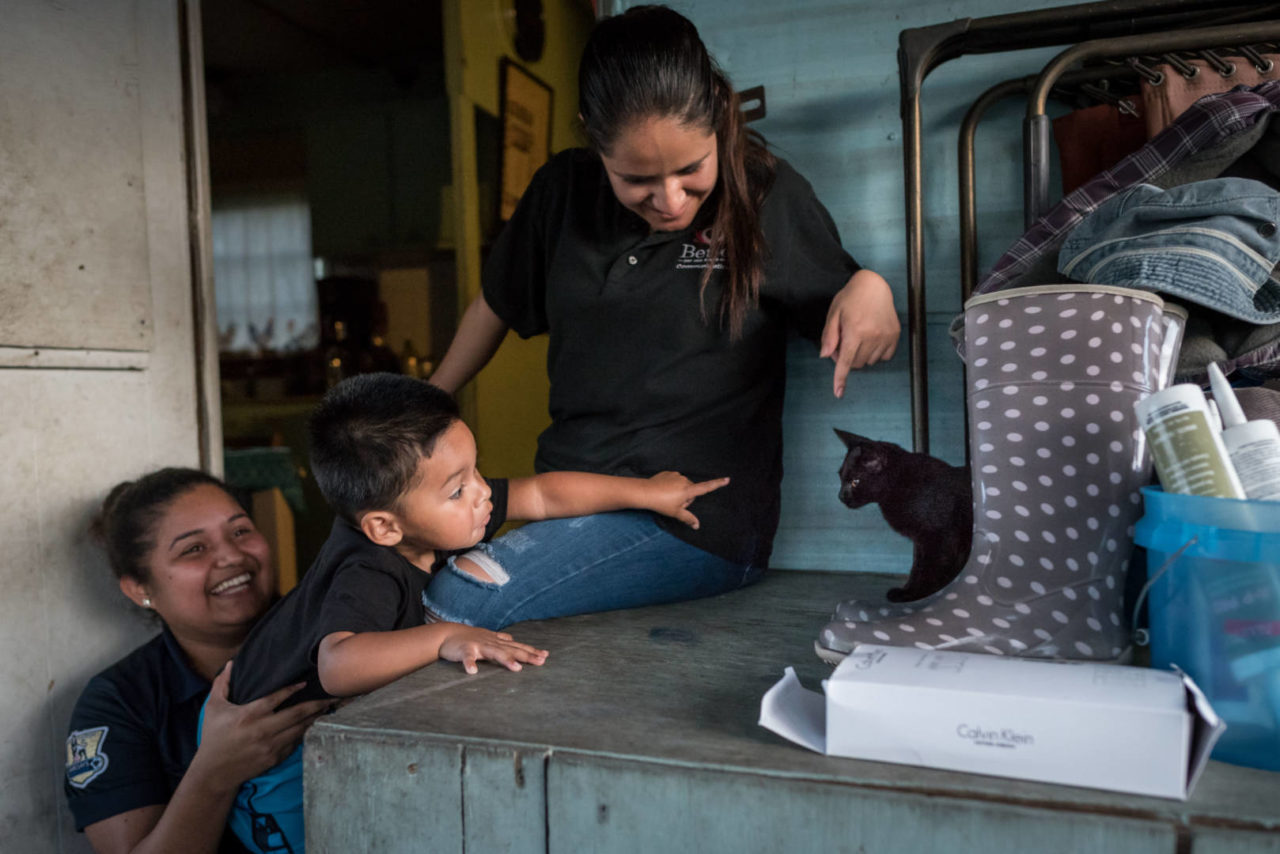
In the late afternoon, Lorenzo’s wife Leslie Gutierrez, 23, and Lorenzo’s sister Miriam Arreola, 22, play with their nephew Abriel Noah Gutierrez, 2, and the family’s kitten. Even at dusk, it’s too hot and humid to be inside without air conditioning, but that’s when mosquitoes are most active. (©2017 World Vision/photo by Eugene Lee)
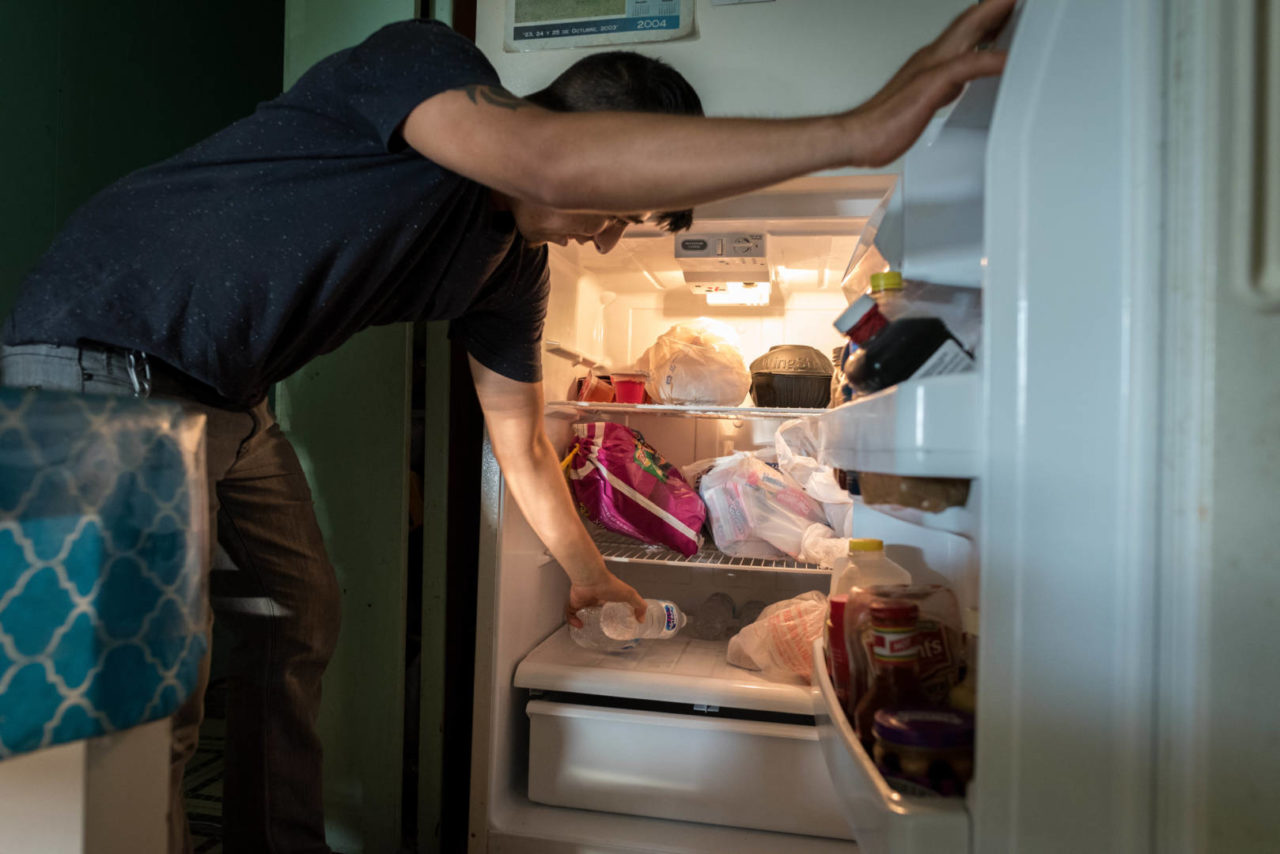
Lorenzo, who also attends Bethel Church, reaches for a cold bottle of water from his refrigerator. He and Leslie had to throw away most of their food because it spoiled in the heat over the week. But now that they have the generator going, they can restock their refrigerator. The neighborhood generators have made a big difference, he says. “Without electricity, it was hard to sleep, but last night, with the fan on, we were able to sleep in the bed. It was so much better,” Lorenzo says. (©2017 World Vision/photo by Eugene Lee)
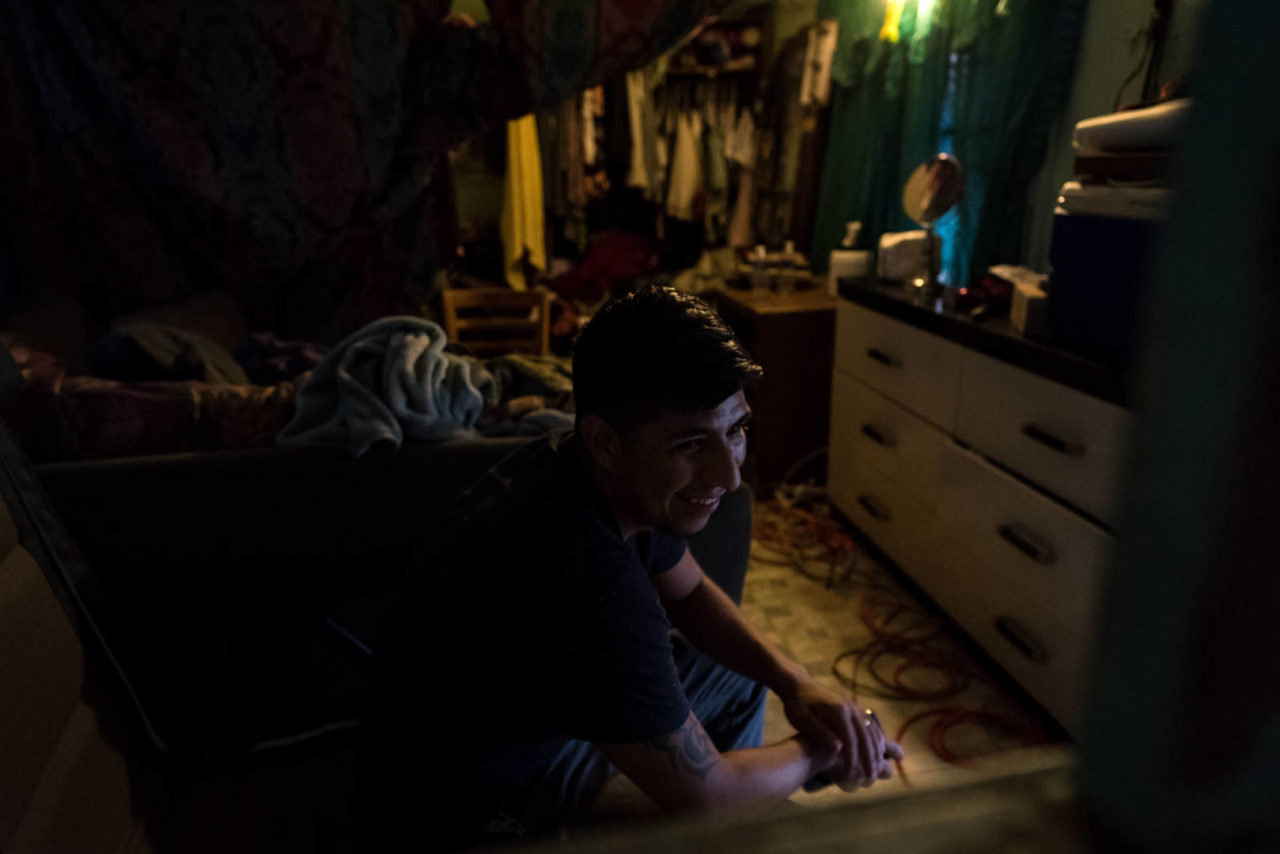
Lorenzo and Leslie share a trailer with his mother and father. He says they have been in the dark all week, stumbling around trying to find things while inside. Without inside light, they’ve also stayed outside longer, which means getting bitten by mosquitoes. They feel blessed that their trailer was still standing when they came back home after evacuating to Alabama, but it has been a difficult time. (©2017 World Vision/photo by Eugene Lee)
